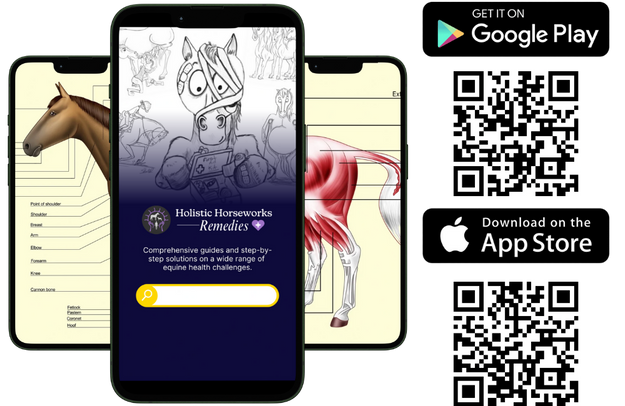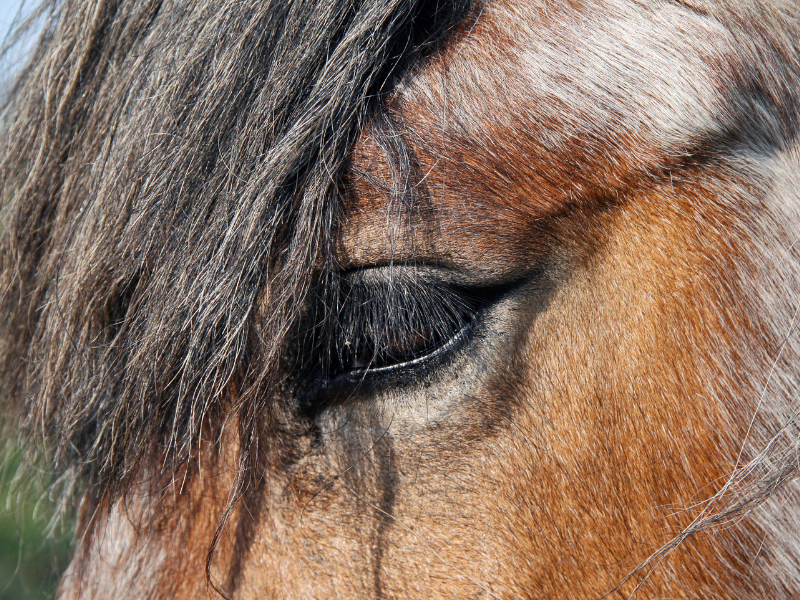
Caring for Older Horses: Arthritis, Mobility, Nutrition, and Hooves
In this episode of Holistic Horseworks Talks, April Love shares helpful practices for caring for older horses. She offers information not only about supporting the symptoms of arthritis but even more importantly, preventative measures to keep it at bay for as long as possible. April also shares many other useful tips for aging equines such as choosing healthy feed to keep on weight, the importance of daily stretching, and even hoof care.
Episode Transcription
Expand to read more...
Speaker 0:01
Welcome to Holistic Horseworks talks. Join us with founder April Love as we talk about equine care. Learn what you can do to keep your horse happy, healthy, rideable and sound through their 30s have a question you’d like to submit to the podcast, just email april@horseworks.com for a chance to get it featured on the next episode.
Lilian Edwards 0:30
Hi, this is Lilian with April from Holistic Horseworks. Today we have questions about older horses that are getting arthritic. How do you deal with the older horse to keep them going as long as you can?
April Love 0:43
So the reason that they’re getting arthritic ahead of time is because the joints haven’t been loading correctly. And anytime you have joints and bones not loading correctly, it creates heat and the heat brings and attracts calcium. So that’s how your osteoarthritis grows, which is like a coral reef, it’s porous. It’s sharp, it can pinch on nerves, that’s your side bone, your ring bone, your kissing spine, your arthritic neck.
So doing my daily yoga would really help but the yoga is to show you that there is a deeper glitch. So you can get a distance reading, it’s a seven page report that you get and with my videos, you can realign the horse’s body and bring it back to balance. And that’s going to give you another 5 to 10 years. So when people say my horse can’t do this anymore, I look at that, well, his body isn’t able to move that way right now. But we can change it.
And the worst thing you can do is take some prize show horse and just throw it out to pasture when it’s used to being groomed, and bathed and fly sprayed, and all of a sudden now it’s feeder all long and it’s not getting love, and it’s getting tick bites and flies and they really just feel you know, thrown away.
And a lot of people sometimes donate these to the therapeutic riding programs. And then they’re just going around in a circle with an unbalanced rider when you just really needed to get into working on their body and head, cranial bones at an earlier age. And you know, people’s like, well, when do you start as early as you can.
Once you have the arthritic changes, I have some YouTube videos and it’s in my horse 101 book and my horse 102 That’s on Amazon holistic alternatives. Dynamic makes a product called balm, b-a-l-m, it looks like smells like big orange shoe polish can and we’ll do sweats first sight bone and rainbow and that helped to break it down and get the horse moving a little bit better in those joints. And you can also sweat the knees and the fetlocks for just four hours with clear food wrap. I have videos on that as well and get the joints moving better.
But that’s still just treating a symptom like Bute is still just treating a symptom. You’re masking the pain with a joint injection or Bute or MSM, you’re not fixing why the body is creating the arthritis and the breakdown in the first place.
So the daily yoga is gonna help but you really need to get my distance reading we need to dial down on what is going on with your horse. It’s a seven page report. And then my video the home study and 123 page work but teaches you how to work on your horse and check on him.
And we’ve had horses that are being retired at like 17-18 a little cranky, or they’re tripping all the time. And we do the whole unwinding session and they’re cantering and bucking and doing flying lead changes and everybody’s like, Oh my god, is that my horse? Yes, he was just crooked and in pain and those are all things that you can learn how to fix.
So you can help to break down some of that extra calcification growth which is porous, you’re not going to be breaking down the dense bone. We usually say to gradually introduce raw organic apple cider vinegar like Bragg’s, you know, some horses don’t like it. So you can sprinkle a little bit in the water and on the hay so they get used to it. And then they start loving it and in the summer it’s supposed to help keep flies off as well. And you just mix it in their feed and between that and the balm sweats and the bodywork you’re actually breaking down the excess calcification and the body’s reabsorbing it not like pieces are breaking off and going somewhere that might hurt something else. It’s a slow gradual process. And you can get that spring back in your step in the trot on the older horses with the sight bone in the ring bone.
So, on my YouTube channel, there’s a couple of videos on how to do the balm sweat for hooves, like once a week. And it’s a great hoof conditioner that hoof start growing down more balanced. And it’ll help get rid of those cracks and everything at the top. And you can do the apple cider vinegar, you can do the yoga. So there’s a lot of things and some of these older horses that aren’t as healthy are getting the big scabs and sores on their belly. So they’re miserable out in the pasture. I tell people to go get that thick Desetin or Balmex for babies bottoms and that big jar tub that with the unscrew lid and put that on like just twice a week on those areas. And the flies will leave them alone on their belly on their sheath. The stuff in the tube doesn’t work because when it gets warm, it just runs off.
But there’s a lot of things that we can do, you know, and keeping their teeth balanced. That’s all about the cranial sacral work. If you’re having big hooks in waves with a dental floating, you know that takes a lot of work every year, then your horse isn’t chewing correctly. And if he’s not chewing correctly, he can’t keep weight on and break down his feed. So at the hard keeper horses, we would get the timothy hay pellets and soak them. You might get some shredded beet pulp without molasses you really don’t want to get on the senior feeds which is just pure protein and pure sugar.
And the there’s great A B and C grains and the A is the best and the C, the stuff that’s leftover is what they add molasses to because the horses wouldn’t normally eat it so you’re not getting a top grain, you’re getting molasses that molds in a bag, then you’re getting a chemical mold inhibitor so that it doesn’t, so you’re better off just doing a little bit of shredded beet pulp and some hay pellets and maybe you know a handful of some kind of senior equine feed, but don’t be feeding them, you know, big coffee cans of equine senior, your horses will stop eating because they’re tired of chewing just like grandpa. So if you can soak their feed, so it’s more like oatmeal so that they can eat it two or three times a day. The hay pellets will help keep weight. So, of course, more weight on the top of the back and the butt and that’s where you want to sit and ride.
If you’re doing alfalfa, you’re gonna get the skinnier horse with the big belly because it’s like giving him jelly doughnuts. So if you really want a good top line, like on your endurance horses, we fed Timothy and orchardgrass hey, and it’s kinda like carbo loading like a fat happy Italian, okay, and that would be your horse really mellow, same energy all day long, nice back to sit on, because you’re doing my body work program and you’re feeding him. You know, the Timothy pellets, you can’t afford the hay anymore. It’s gotten so expensive. So Timothy or orchardgrass would be my first choice on the hay pellets. And oat it would probably be my third and an alfalfa mix would probably be my fourth.
Horses cannot absorb the oils, you know, and people say oh feed corn oil or something. They don’t have a gallbladder it really messes them up and it blocks them from being able to absorb the water soluble vitamins like A D and E. So if you want to feed them a vegan because that’s what a horse is, he’s a vegan, fat source, you can soak chia seeds in your frigerator you know big batch of them, they have to really swell up. Otherwise, if you feed it dry to the horse, they actually take moisture from the inside to swell up. So you can just keep that in the fridge and scoop out a cup every day. And that’s a vegan fat source for horses that they can actually absorb.
So there’s your fats, there’s your carbohydrates, there’s a way to keep weight on a horse without actually having to chew a lot. Other things are always checking them for a bean every year because if they can’t pee freely, if it’s a gelding, then the kidneys and the liver are getting backed up, keep their feet balanced, look at the balance of their feet and try to do that horse yoga of mine. It’s on YouTube at least once or twice a week, even if you’re not riding them. It really just stretches them out gives them endorphins keeps everything moving. Otherwise it’s like grandpa sitting in the rocking chair. They’re just gonna keep getting stiffer and stiffer. If grandpa went for a walk and did five minutes of yoga every day, his health and vitality would be higher for a longer period of life.
Speaker 9:55
Thank you for tuning in to another episode of Holistic Horseworks talks April Love. Remember to check the show notes for links to all the resources mentioned in this episode. Have a question you’d like to submit to the podcast, email april@horseworks.com For a chance to get it featured on the next episode. Love this information, share it with your horse friends, they’ll find it helpful to. To learn more, visit holistichorseworks.com And before you go, make sure you have a copy of our free ebook, horse 101 Everything you wish you had known before you got your first horse at horseacademy101.com
As our equine companions start racking up the years, looking out for their well-being becomes even more of a big deal. Making sure they’re comfy, full of life, and kicking it for the long haul means taking a mindful and all-encompassing approach to their care.
So, we’re here to chat about some helpful ways to pamper those senior equines. We’ll dive into why arthritis pops up and how to tackle it, how to maintain mobility, and even give you the lowdown on keeping nutrition and hooves in top shape.
With these tips, you’ll be all set to keep your horse healthy, happy, and rideable well into their 30s!
Understanding Arthritis in Aging Horses
As our trusty steeds grow wiser, they might start feeling the twinge of arthritis – a common condition that can affect their comfort and mobility.
Arthritis in older horses often crops up because their bones and joints haven’t been shouldering the load quite right over the years due to misalignments in the body. Misalignments can cause friction between bones and joints, which leads to calcification. You can spot arthritis by feeling for extra heat in the area. Whether it’s showing up as sidebone, ringbone, or giving your horse a stiff neck and knees, arthritis a pain – quite literally!
While things like Bute and joint injections can offer some short-term relief, it’s important to know they’re more like putting a Band-Aid on the issue. They help with the symptoms but don’t really dig into the root causes of arthritis.
Lots of folks swear by Dynamite Balm to ease their horses’ arthritis discomfort and even dial down the condition. Applying this strategically can help break down calcification and get those joints moving smoother than ever. See how we use Dynamite Balm as a sweat for arthritic knees.
But more than anything, it’s essential to find the root of what is causing or has caused your horse’s arthritis in the first place. More than likely, as we mentioned before, it’s because the joints and skeletal system haven’t been able to load the body correctly for far too long. Equine Musculoskeletal Unwinding can help you bring your horse’s body back into balance, as well as proper form and function in order to avoid and even potentially reduce the occurrence of arthritis.
Daily Horse Yoga for Mobility
As our horses age, helping them stay spry and limber should be a top priority. Introducing a little horse yoga into their routine can do wonders to keep them on the move and comfortable in their bodies. Whether your senior horse still hits the trails or just enjoys leisurely time around the pasture, adding some yoga to their day can seriously increase their quality of life.
The Holistic Horseworks Horse Yoga program offers a range of physical and mental benefits for horses. It promotes flexibility, strength, and balance, which are crucial elements for fending off the effects of aging, and arthritis. This yoga routine also serves up some quality bonding time. This regular one-on-one time will make your horse feel oh-so-special and cared for.
Here’s the neat thing – horse yoga is more than just physical exercise, it’s also a diagnostic tool. It lets you observe where your horse may have trouble moving, identifying areas of stiffness or discomfort. If there’s something they can’t do in the yoga routine, it means there’s a deeper glitch. By doing horse yoga daily, you can more easily address any underlying issues before they get out of hand.
And, by engaging in gentle stretches and movements, senior horses can maintain and even improve their range of motion. This not only enhances their quality of life but also allows them to continue participating in activities they enjoy!
Balanced Nutrition and How it Relates to Teeth
Especially in their later years, making sure your horse gets the right nutrition is key for them to stay in top form.
Now, when it comes to their teeth, aging horses might face a common issue – hooks and waves. This can make chewing a bit of a challenge, possibly leading to weight loss and nutrient gaps.
We’ve noticed this can often be linked to untreated cranial compression from past injuries. The good news? You can lend your horse a helping hand with techniques in Cranial Sacral Unwinding and Equine Cranial Sacral Energy Work.
If your horse is already dealing with dental issues, missing teeth, or struggling to keep on the pounds, choosing the right feed can make a world of difference.
Here’s our recommendation: Avoid senior feeds with excessive sugars and focusing on high-quality, easily digestible feeds can help maintain weight and vitality in aging equines. Shredded beet pulp without molasses, soaked timothy hay pellets, and carefully chosen grains can provide essential nutrients while being easier to chew and digest.
Hoof Care for Older Horses
As horses grow older, their hooves require some extra attention to stay balanced and healthy, especially if they’re not ridden as often. Remember, even if your horse isn’t being ridden, their hooves still need care!
Using Dynamite Balm sweats can really help with conditions like sidebone and ringbone. It’s like a special spa treatment for their hooves, making sure they grow well and stay in good shape.
A natural remedy with numerous benefits, raw organic apple cider vinegar can also play a helpful role in maintaining hoof health. Gradually introducing this strong flavor, perhaps by sprinkling it in water or on hay, helps horses acclimate over time. Apple cider vinegar not only aids in breaking down excess calcification on hooves (and from arthritic) but also acts as a natural fly repellent in warmer months!
Get a Distance reading
Maturing horses often develop a range of physical issues, such as arthritis, muscle stiffness, or joint discomfort. A distance reading can help pinpoint the root causes of these problems, which may not be immediately apparent to the untrained eye. Based on the information gathered from the distance reading, a customized care plan can be created. This plan may include specific exercises, bodywork techniques, and other recommendations tailored to the specific needs of your horse. The goal is to empower you with a deeper understanding of what is going on with your horse, and what you can do to help!
Unlocking the Secrets of Holistic Horse Care: Insights from the Equine Musculoskeletal Program
In the world of horse care, understanding the musculoskeletal system is vital for ensuring the health and performance of our equine companions. In a recent podcast episode, experts from Holistic Horseworks shared invaluable insights into their musculoskeletal program, shedding light on the importance of holistic approaches in equine health.
6 Must-Know Hore Care Tips for Winter
In this comprehensive guide, we'll share five essential cold weather horse care tips straight from the experts at Holistic Horseworks.Whether you're dealing with freezing temperatures, icy conditions or relentless mud, these strategies will help you keep your horse happy and healthy through even the harshest of winters.
Equine Vaccines: What’s In Them and How to Help Your Horse Naturally
Vaccines are often considered a cornerstone of equine health, but have you ever wondered exactly what’s in them, or how they might be affecting your horse’s long-term health?
Horses Are Talking, Are You Listening?
Holistic equine expert April Love wants you to know: your horse is speaking. And once you learn how to listen, everything changes. In her recent appearance at the Holistic Horse Conference, April sat down with Dr. Jeff Grognet and animal communicator Joan Ranquet to share her revolutionary approach to equine wellness.
How a Distance Reading CHANGED Kimberly and Her Horse
In this interview, holistic healing expert April Love uncovers the deep, often invisible threads connecting horse and human wellness. Join Kimberly, host of The Backyard Horse Enthusiast, as she shares her transformative experience with April's intuitive healing techniques.
Is It Really a Training Problem, or Is Your Horse in Pain?
If your horse bucks, resists the canter, or just feels off under saddle, the first thing many people assume is that it’s a training issue. Maybe the horse is being stubborn, or maybe it just needs more groundwork. But I want to let you in on something I’ve seen over and over again—those “training problems” are almost always your horse trying to say, “Ouch, that hurts!”
Did You Know That Saddle Fit Issues Are Really Horse Body Issues?
Saddle fit isn’t just about the saddle — it’s about the ever-changing body of the horse beneath it. While it’s tempting to invest in custom saddles or quick fixes like padded inserts, lasting comfort and performance come from addressing the root of the issue: your horse’s physical balance and symmetry.
Useful, Helpful Tips and Tricks for Horse Care | April Love’s Interview on The Backyard Horse Enthusiast
What would you do if your horse was limping, colicking, or spooking—and no one could tell you why? That question lit a fire in April Love that would grow into a global mission: helping horse owners uncover the root causes of mystery lameness, behavioral issues, and chronic pain that traditional methods often miss.
How to Find the Cause of Lameness in Horses
When a horse shows signs of lameness, pinpointing the exact cause can be challenging due to compensatory mechanisms. Horses often redistribute weight and movement to avoid pain, making the actual injury difficult to locate. Here’s a practical step-by-step guide to help you identify the root cause of lameness in horses.
Dogs Love Bodywork, Too! (Prevents ACL Tears and Hip Displaysia.)
If you’ve ever watched your dog run and noticed something a bit off—like both hind legs moving together or noticeably dragging their toes—it might be more than just an aging issue or a minor injury. Proactively managing canine skeletal health can prevent long-term joint issues such as hip dysplasia and ACL tears.

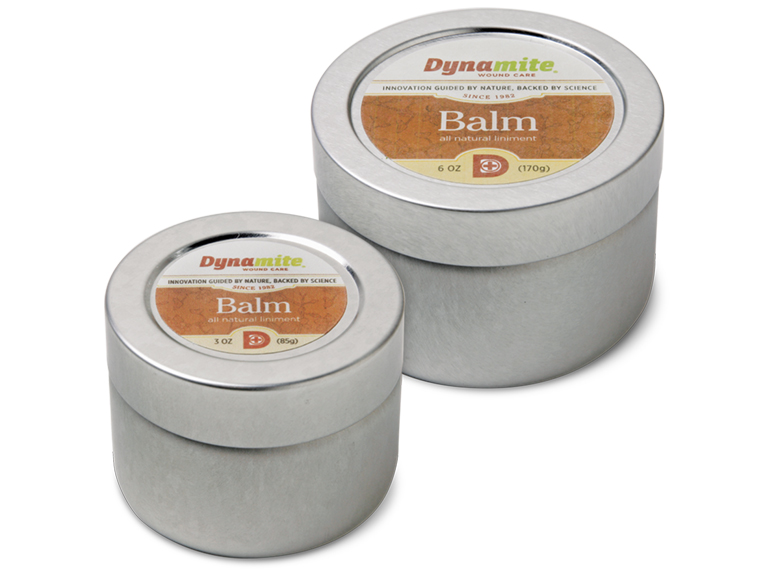
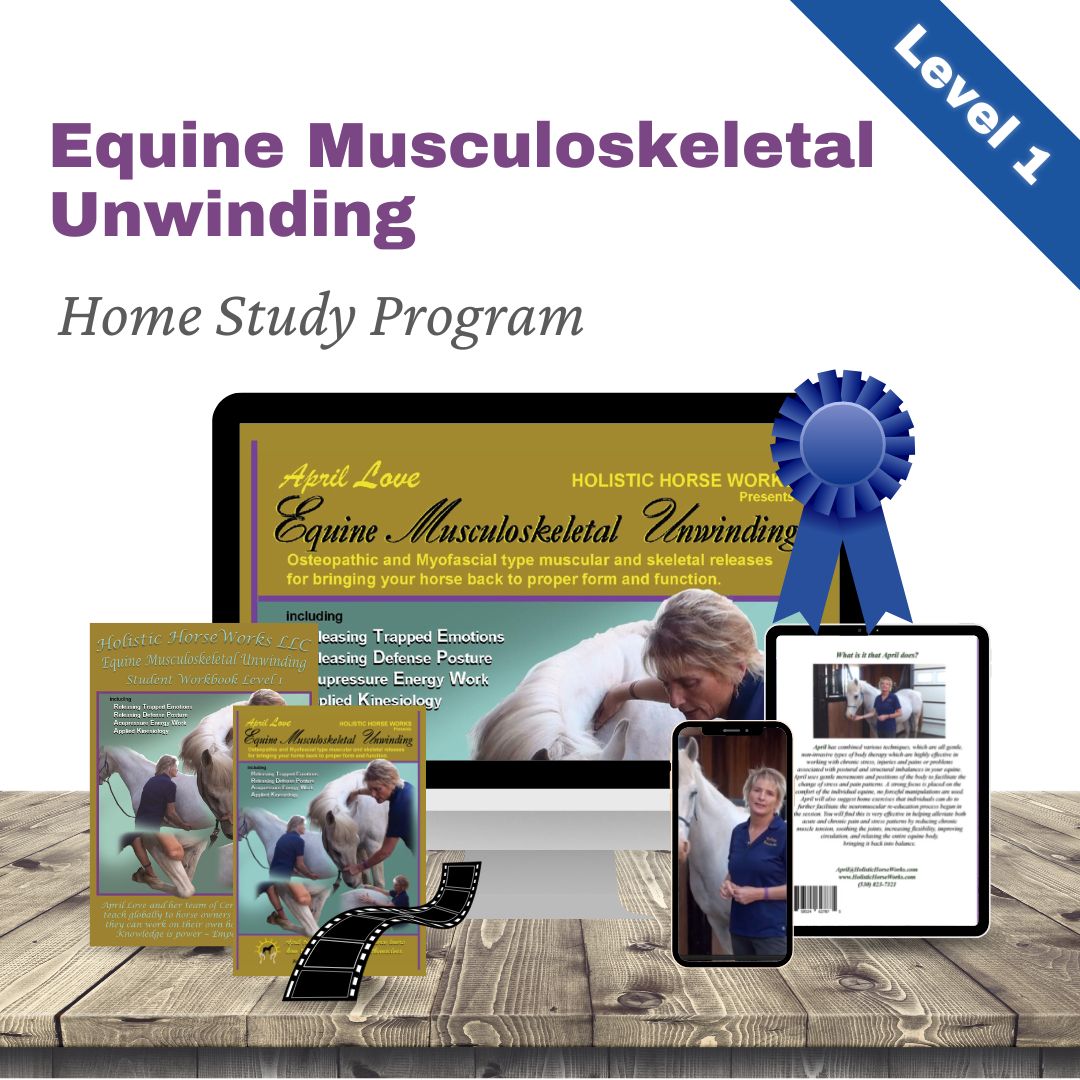

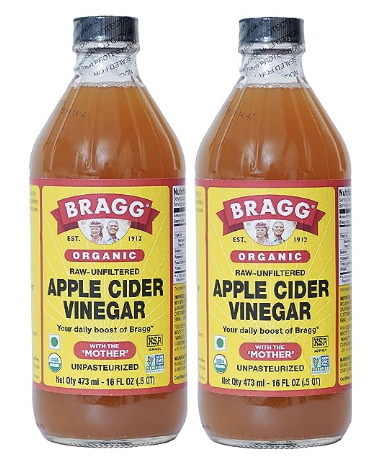
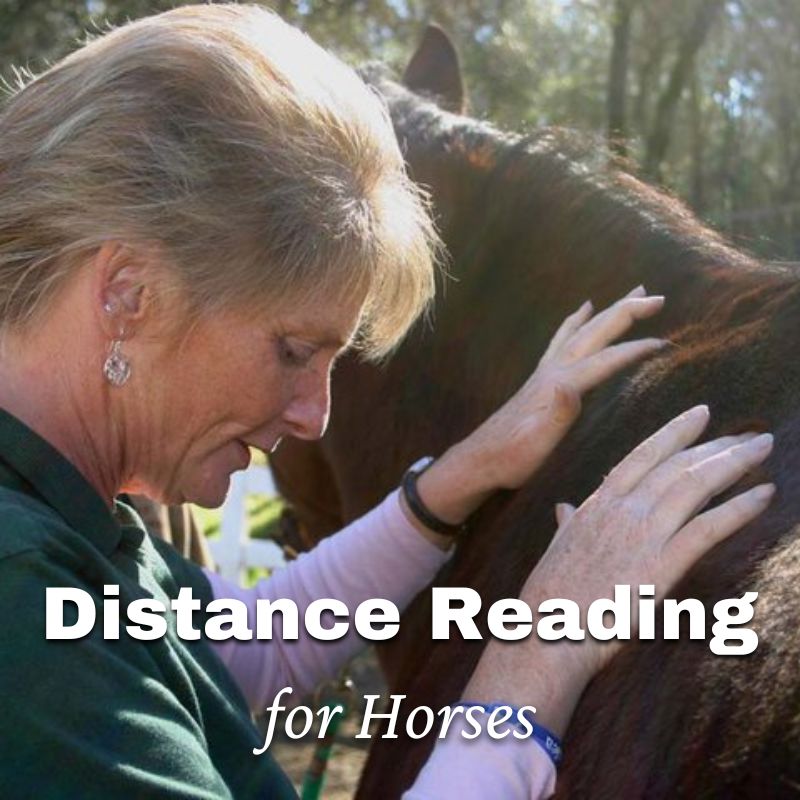

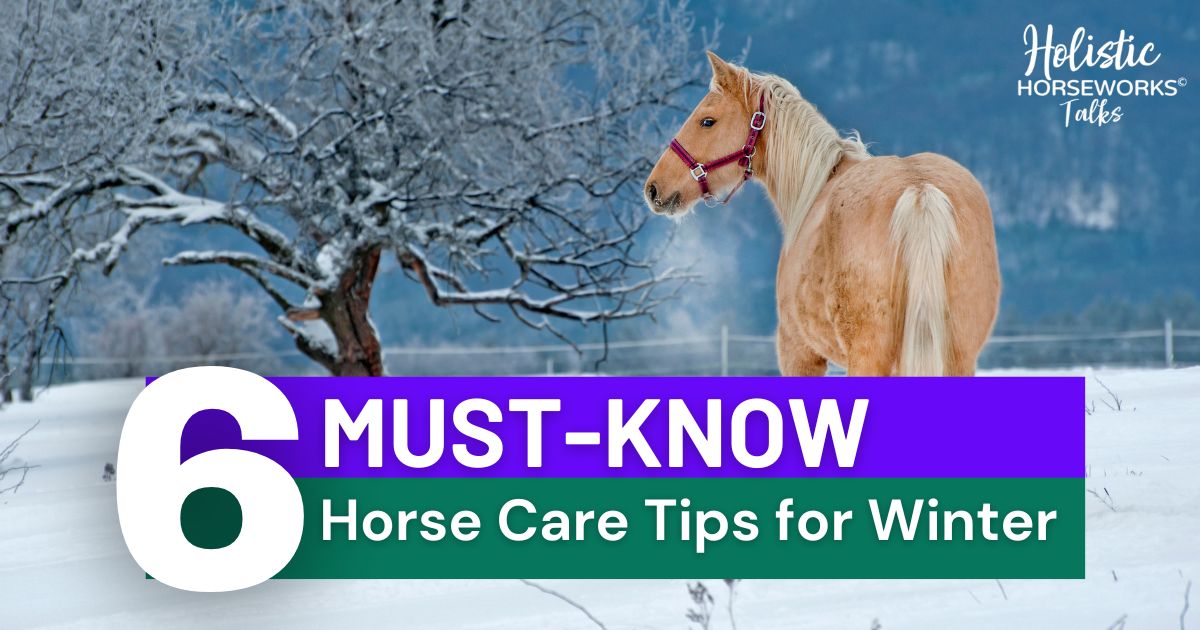
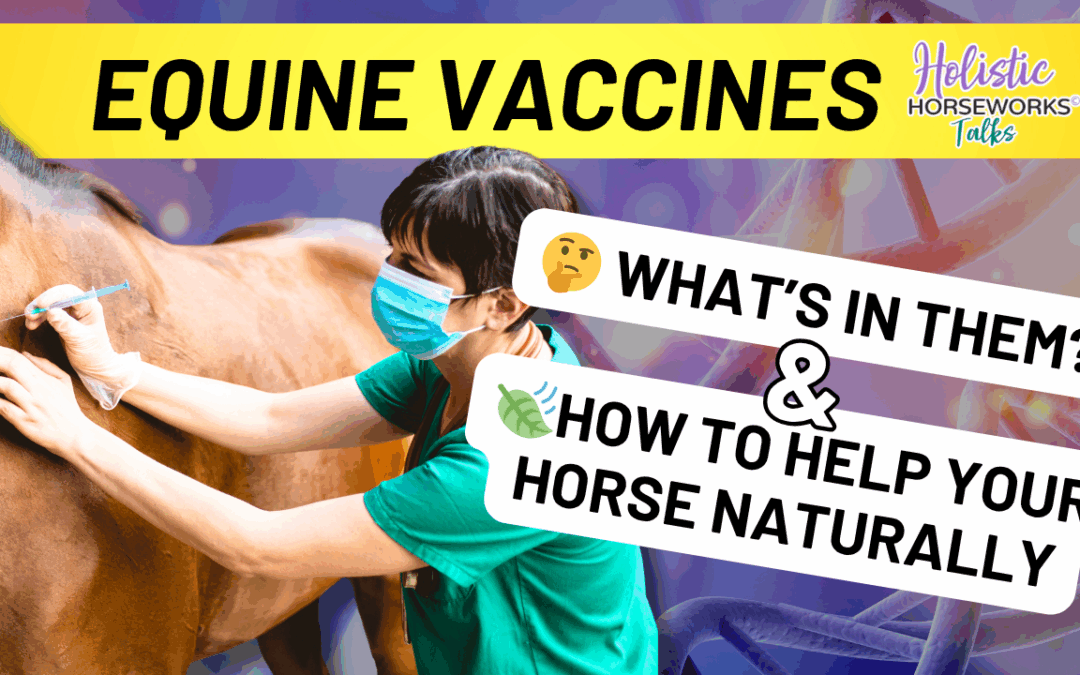
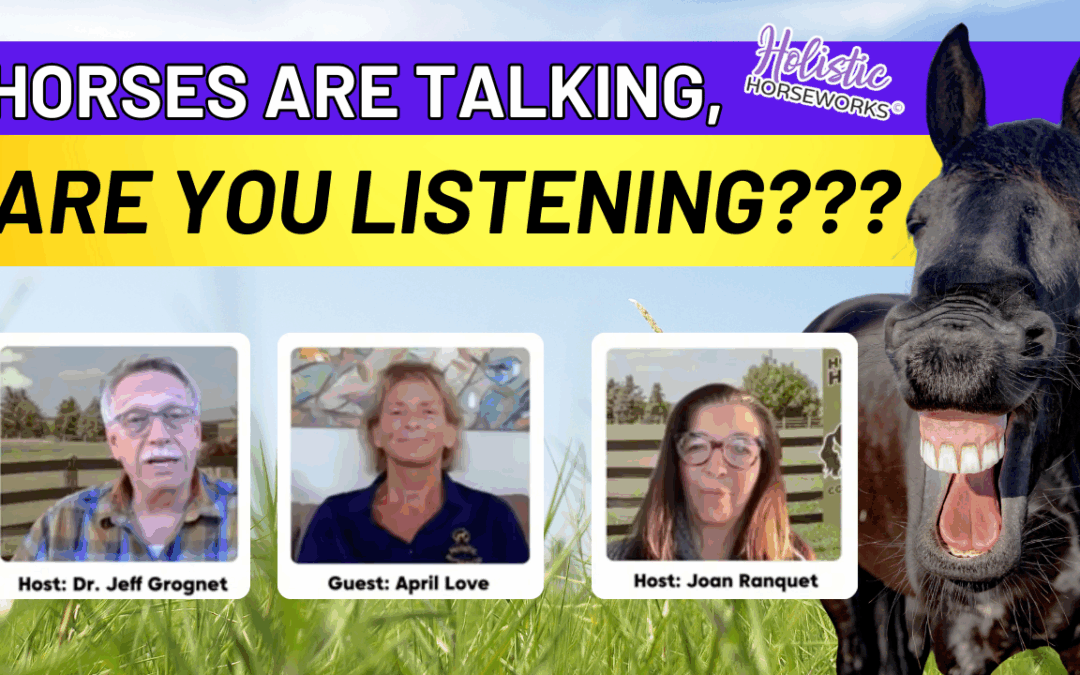
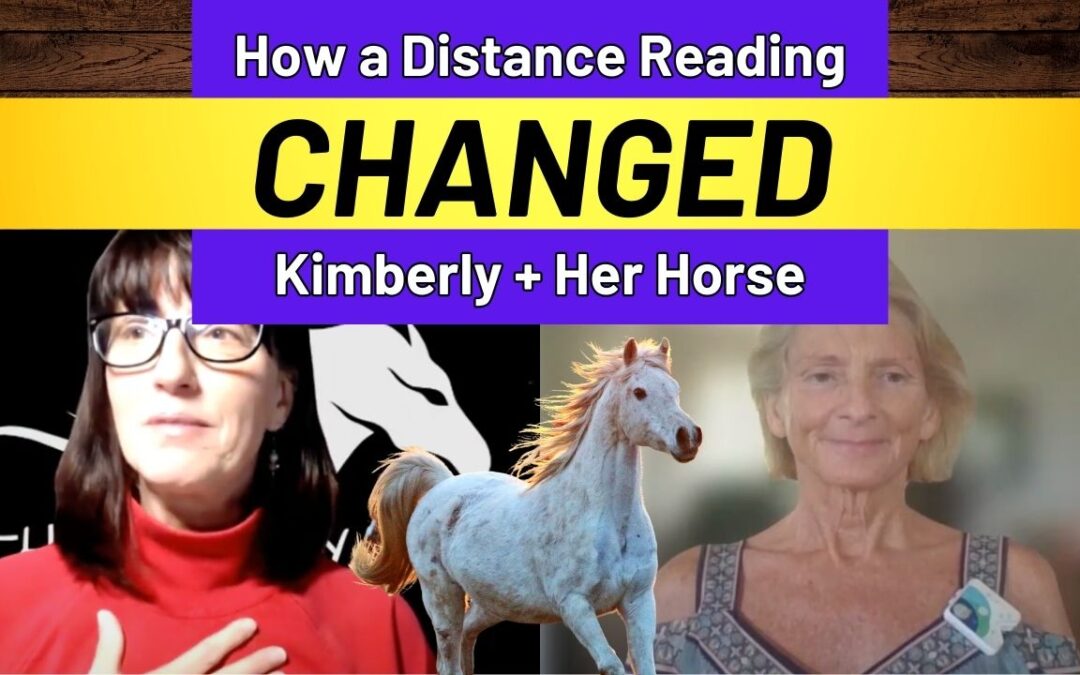
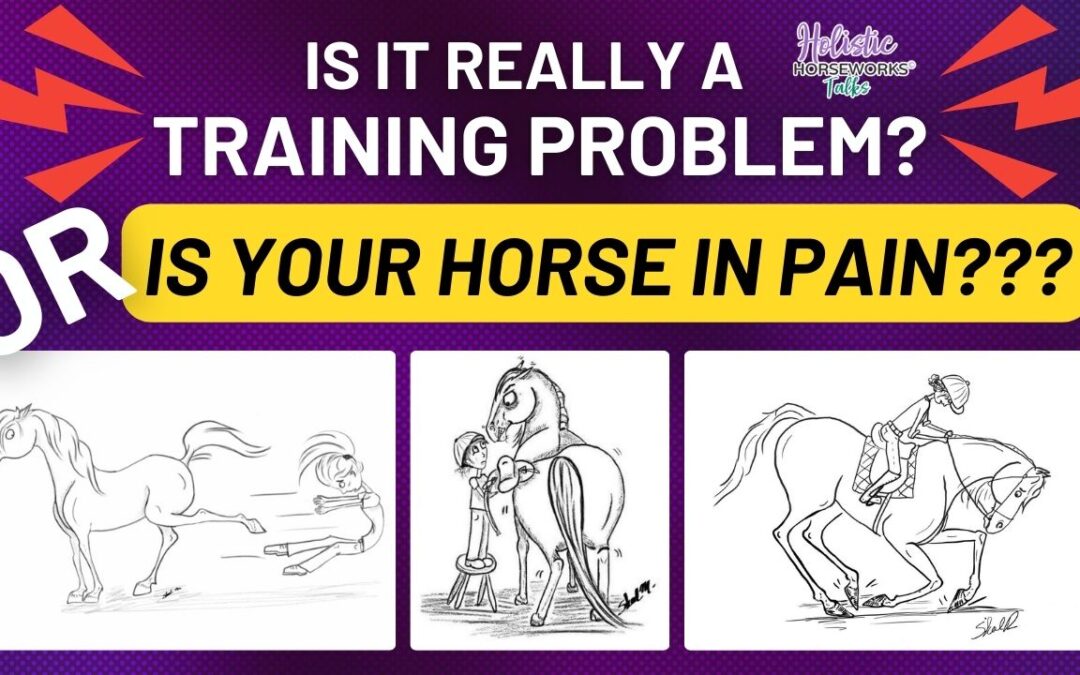
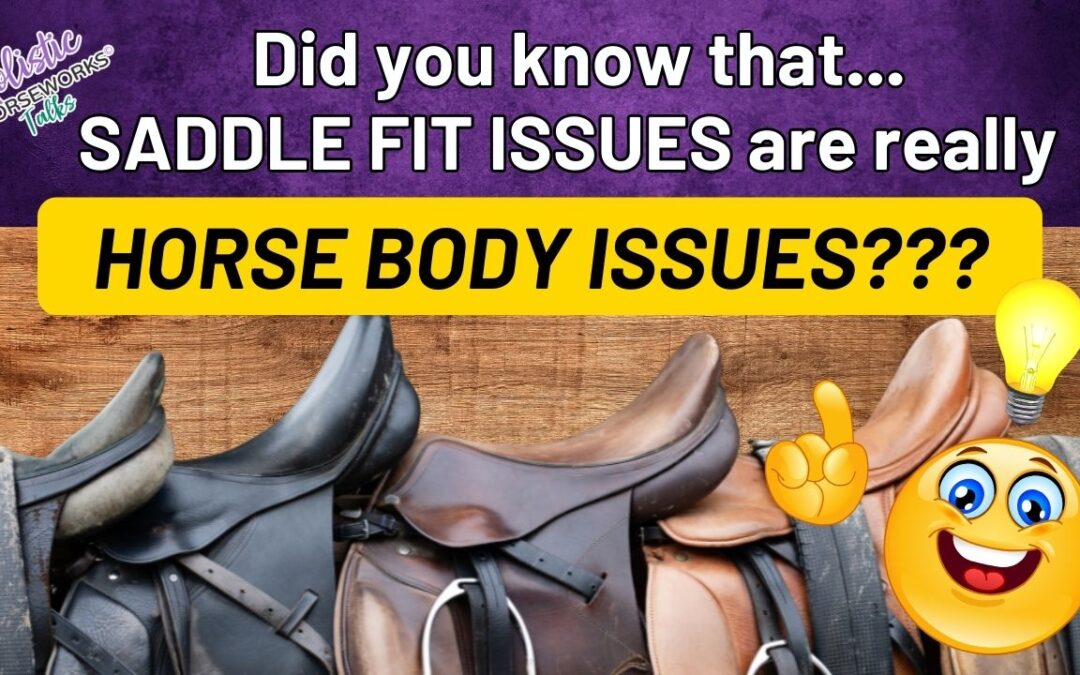
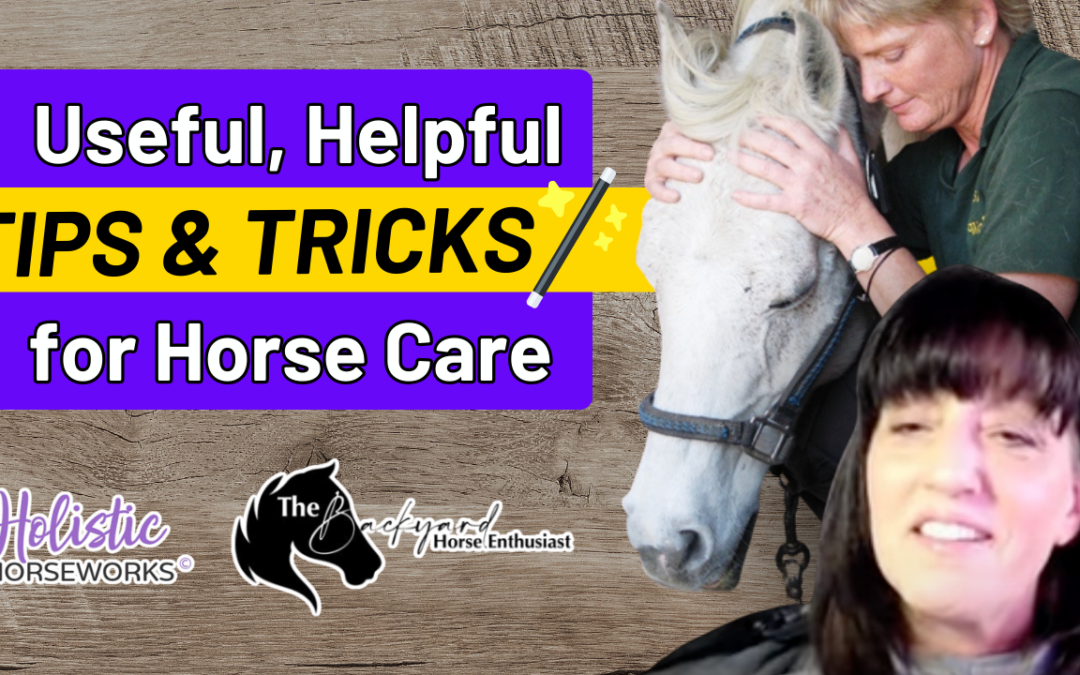
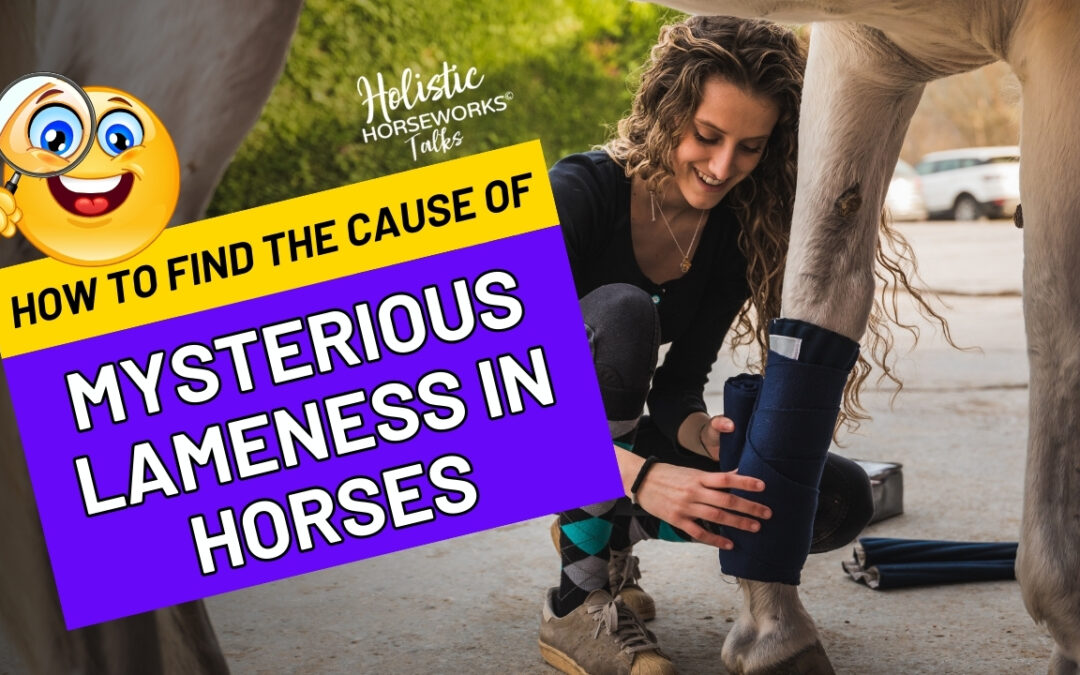
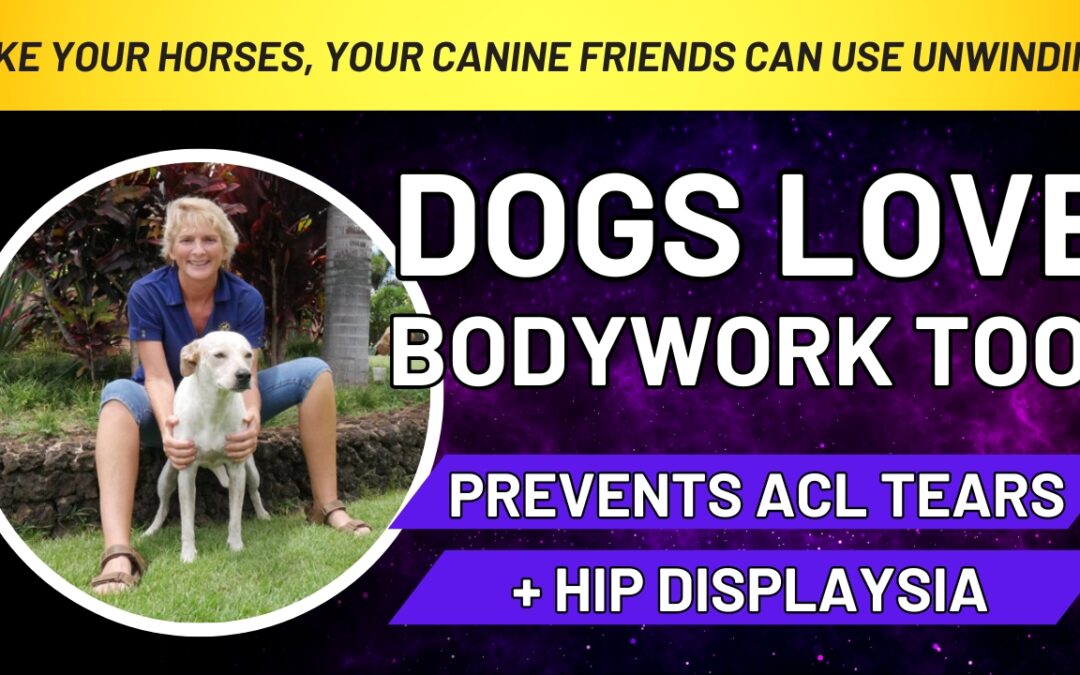
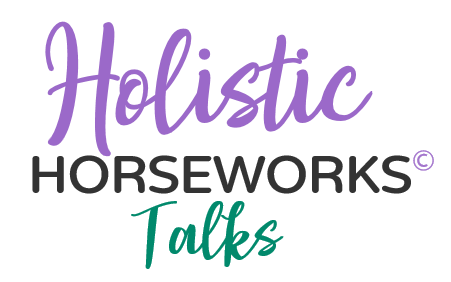
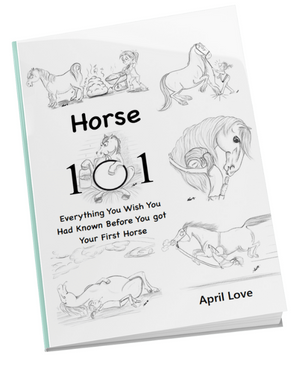
![Complete Level 1 & Level 2 Home Study + Private Training Package [NO DVD]](https://holistichorseworks.com/wp-content/uploads/2022/08/Level-1-and-Level-2-complete-home-study-and-training-package-400x400.jpg)
![Level 1 "Equine Musculoskeletal Unwinding" Home Study -Watch Instantly [NO DVD]](https://holistichorseworks.com/wp-content/uploads/2022/08/Level-1-Home-Study-400x400.jpg)
![Level 2 “CranioSacral Unwinding & Advanced Applied Kinesiology” Home Study - Watch Instantly [NO DVD]](https://holistichorseworks.com/wp-content/uploads/2022/08/Level-2-Home-Study-400x400.jpg)
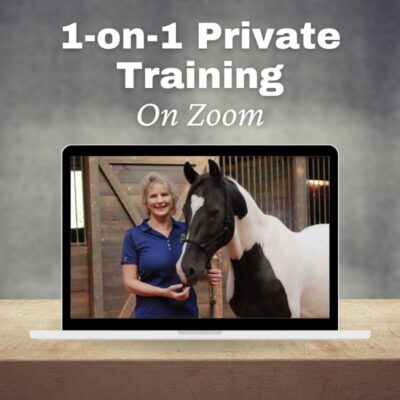
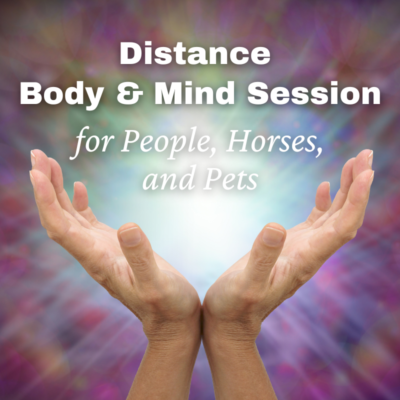
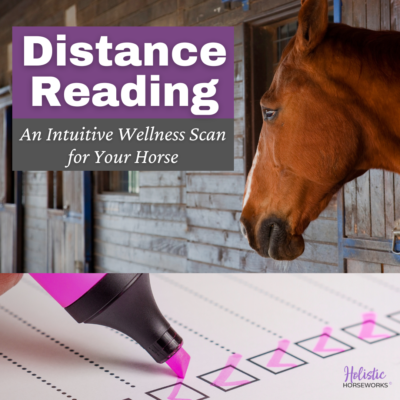
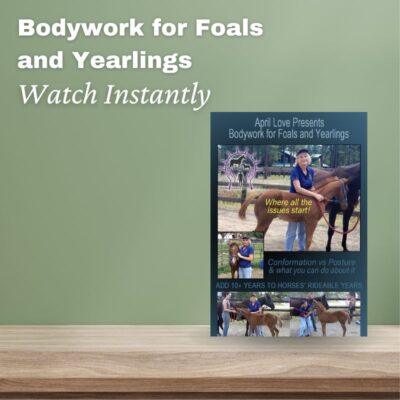
![Equine CranioSacral Energy Work -Watch Instantly [English and French]](https://holistichorseworks.com/wp-content/uploads/2022/09/equine-cranial-sacral-energy-work-watch-instantly-400x400.jpg)
